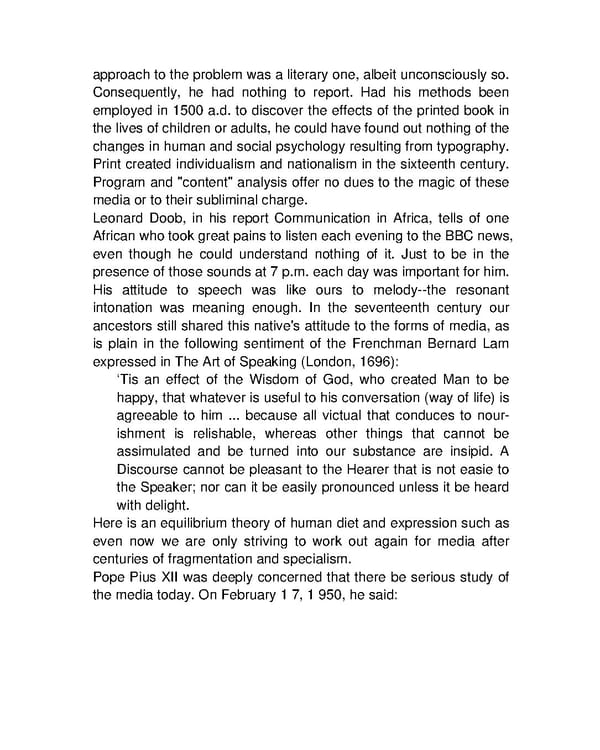approach to the problem was a literary one, albeit unconsciously so. Consequently, he had nothing to report. Had his methods been employed in 1500 a.d. to discover the effects of the printed book in the lives of children or adults, he could have found out nothing of the changes in human and social psychology resulting from typography. Print created individualism and nationalism in the sixteenth century. Program and "content" analysis offer no dues to the magic of these media or to their subliminal charge. Leonard Doob, in his report Communication in Africa, tells of one African who took great pains to listen each evening to the BBC news, even though he could understand nothing of it. Just to be in the presence of those sounds at 7 p.m. each day was important for him. His attitude to speech was like ours to melody--the resonant intonation was meaning enough. In the seventeenth century our ancestors still shared this native's attitude to the forms of media, as is plain in the following sentiment of the Frenchman Bernard Lam expressed in The Art of Speaking (London, 1696): ‘Tis an effect of the Wisdom of God, who created Man to be happy, that whatever is useful to his conversation (way of life) is agreeable to him ... because all victual that conduces to nour- ishment is relishable, whereas other things that cannot be assimulated and be turned into our substance are insipid. A Discourse cannot be pleasant to the Hearer that is not easie to the Speaker; nor can it be easily pronounced unless it be heard with delight. Here is an equilibrium theory of human diet and expression such as even now we are only striving to work out again for media after centuries of fragmentation and specialism. Pope Pius XII was deeply concerned that there be serious study of the media today. On February 1 7, 1 950, he said:
 Understanding Media by Marshall McLuhan Page 26 Page 28
Understanding Media by Marshall McLuhan Page 26 Page 28